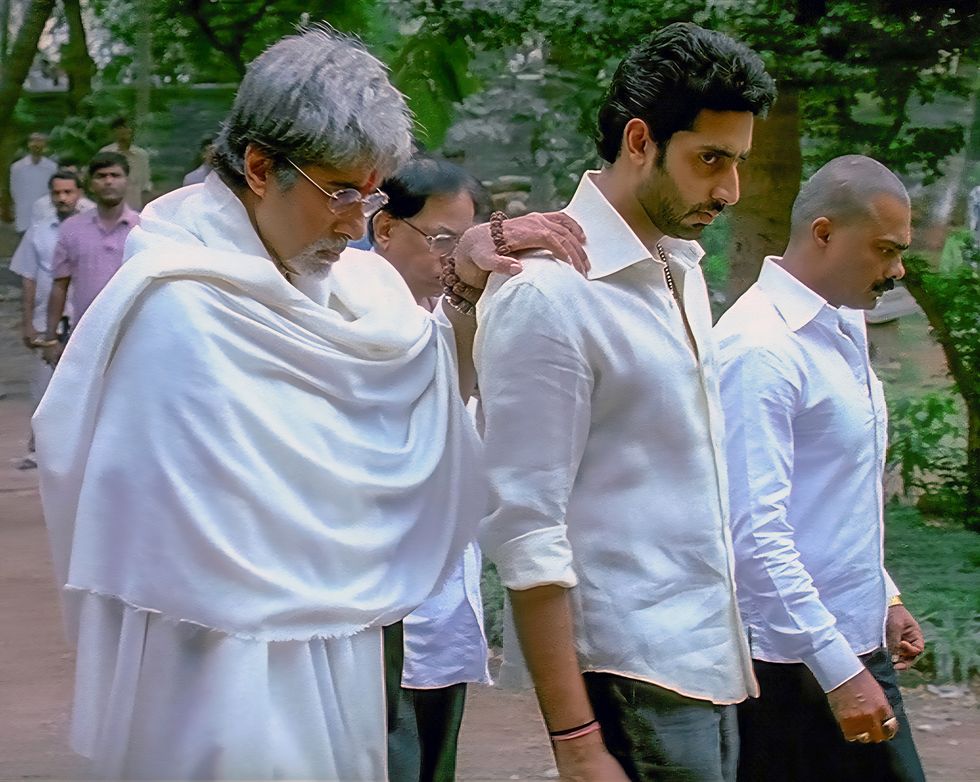A new adaptation of classic play The False Servant has been delighting audiences at Orange Tree theatre in Richmond since it premiered last month.
This version by Martin Crimp was acclaimed at its 2004 National Theatre première. It has been given a new lease of life by a talented cast that includes Uzair Bhatti as Frontin, in the story of a woman disguised as the son of an aristocrat, embarking on a plan to expose a caddish suitor.
Eastern Eye caught up with the talented actor to discuss his new play and close connection to performance.

What first connected you to acting?
I remember first going to the theatre with my parents as a young boy. I went to the National Theatre and the Globe and was just completely enthralled by the actors on stage. To see how they created this new world, as a nine-year-old, I was just fascinated by it. Ever since then, I always wanted to be able to do that – to emulate people, to use your skill and craft to create a whole world. And to let the audience get lost for a couple of hours.
How do you feel being on stage in front of a live audience?
I absolutely love it. The stage is so different as a medium to film and TV, where someone cries cut and then you stand around waiting. On stage you feed off the energy of the audience. The more you give, the more they give to you. All the energy they feed into the performance creates something new every single night.
How do you feel stepping into an acclaimed play like The False Servant?
It’s great. I think Martin Crimp’s translation is wonderful, and very timely as well. We have started to defy gender norms and break down barriers around identity. People are comfortable with how they identify themselves, versus who they were told they are. The play really shows that you can be whoever you want. Your gender doesn’t define you.
For those, who don’t know it, tell us about the play and your character?
It’s essentially about power play. One of the characters disguises herself as a man to
expose the nasty characteristics of one of her suitors.
What is your favourite moment in the play?
My favourite moment in the play is when Trivelin speaks to the supposedly evil Lelio about how he was pruning the garden and saw something happen between the chevalier and the countess. It’s absolutely hysterical.
How aware are you of other productions of it?
I am aware it was done previously at the National in this translation. But every production has its own style. And the actors bring their own take on it as well, so I am sure it will be nothing alike.
Why do you think this play The False Servant is so popular?
Because people can see versions of themselves in the characters. I think people also wonder what it’s like to disguise themselves and be someone else. And on top of it, there is a power play. It’s got all those human elements that we see in daily life, consolidated into one 90-minute performance. People can see elements of their own lives in it. And that’s very appealing.
As an actor how does comedy compare to other genres?
Comedy is about timing. You’ve got to really understand the language, to know where the beats are, and how to hit the right moment. And it’s also completely dependent on the audience, on how receptive they are. If you know what you’re doing, then the audience can be more receptive and open. That’s the perfect cocktail for a great comedy performance.
What inspires you as an actor?
Honestly, watching other actors inspires me. Whether it’s on TV, film, or the rehearsal room. In this process, I have been absolutely fascinated by other actors. They are brilliant and I have learned so much from just watching how they interpret lines and follow their instinct. It has been an amazing experience to be in this rehearsal room, just to feed off their energy and almost steal it! I love it! I get to watch the other actors and steal their great moments and put that in my piggy bank to use in further performances, or in future acting roles.
Why should we come watch the play The False Servant?
It’s just a great, fun night out. It’s so funny, and the performances are so good. I am really proud of the other actors in the cast. Everyone has made such a wonderful, wholesome, full show. Its light-hearted at moments, its dark at times. Honestly, it’s absolutely hysterical. You will have such a fun night.
The False Servant is being staged at Orange Tree Theatre, 1 Clarence Street, Richmond, TW9 2SA until July 23.
See: www.orangetreetheatre.co.uk





 Lunchbox is a powerful one-woman show that tackles themes of identity, race, bullying and belongingInstagram/ lubnakerr
Lunchbox is a powerful one-woman show that tackles themes of identity, race, bullying and belongingInstagram/ lubnakerr She says, ''do not assume you know what is going on in people’s lives behind closed doors''Instagram/ lubnakerr
She says, ''do not assume you know what is going on in people’s lives behind closed doors''Instagram/ lubnakerr








 He says "immigrants are the lifeblood of this country"Instagram/ itsmetawseef
He says "immigrants are the lifeblood of this country"Instagram/ itsmetawseef This book is, in a way, a love letter to how they raised meInstagram/ itsmetawseef
This book is, in a way, a love letter to how they raised meInstagram/ itsmetawseef
 A still from Sarkar, inspired by 'The Godfather' and rooted in Indian politicsIndia Glitz
A still from Sarkar, inspired by 'The Godfather' and rooted in Indian politicsIndia Glitz Sarkar became a landmark gangster film in Indian cinemaIndia Glitz
Sarkar became a landmark gangster film in Indian cinemaIndia Glitz The film introduced a uniquely Indian take on the mafia genreRotten Tomatoes
The film introduced a uniquely Indian take on the mafia genreRotten Tomatoes Set in Mumbai, Sarkar portrayed the dark world of parallel justiceRotten Tomatoes
Set in Mumbai, Sarkar portrayed the dark world of parallel justiceRotten Tomatoes Ram Gopal Varma’s Sarkar marked 20 years of influence and acclaimIMDb
Ram Gopal Varma’s Sarkar marked 20 years of influence and acclaimIMDb
 The statues were the product of a transatlantic effortGetty Iamges
The statues were the product of a transatlantic effortGetty Iamges
 The 50 digital paintings showcase a blend of cosmology and Indian classical musicThe Bhavan
The 50 digital paintings showcase a blend of cosmology and Indian classical musicThe Bhavan
Police may probe anti-Israel comments at Glastonbury